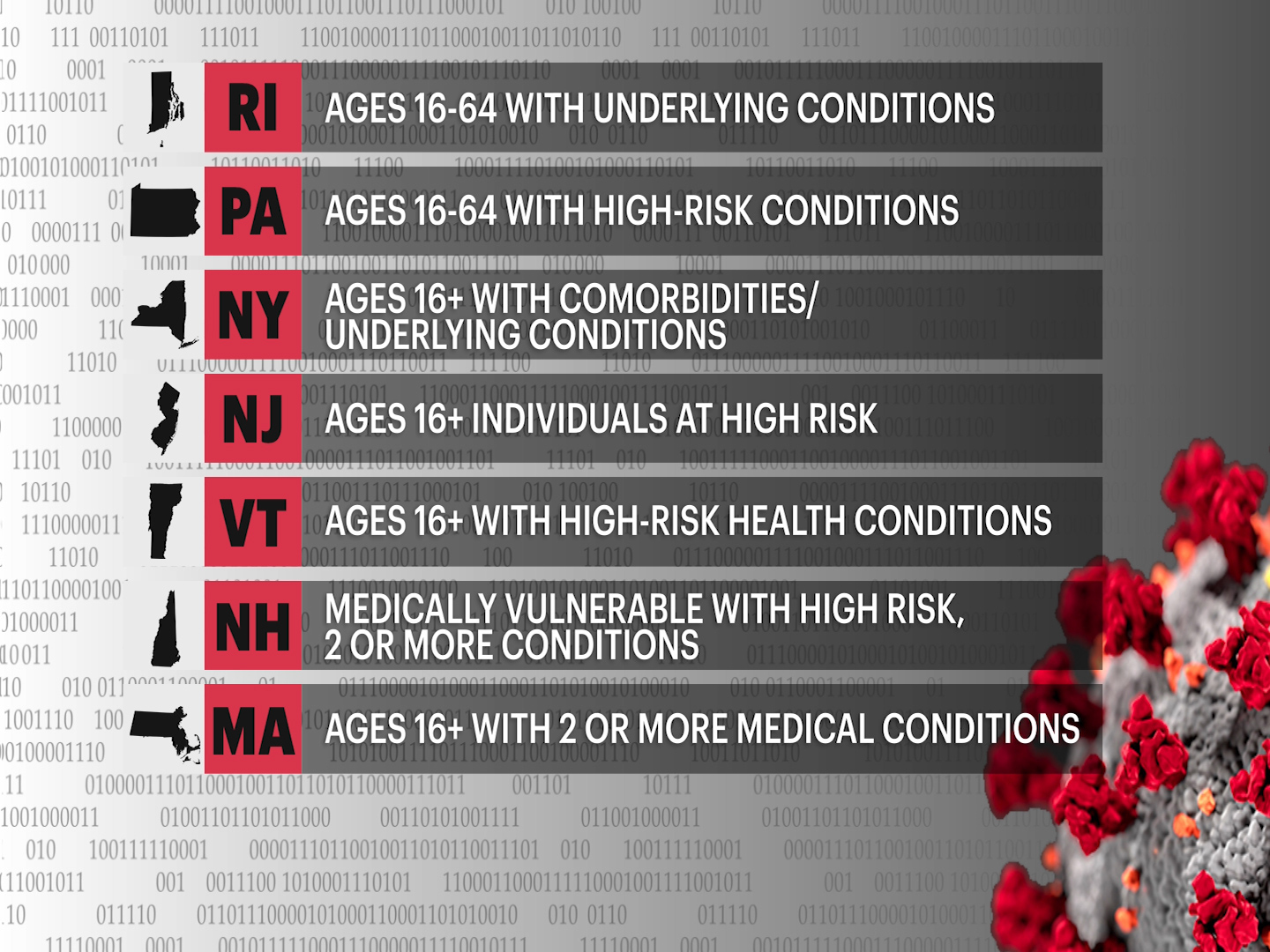More Stories
A 16-year-old cancer patient from Wilton joined a growing list of people with pre-existing conditions that decided to travel out of state to get their COVID-19 vaccine.
Luke Schwartz's family tried to do everything to get him the vaccine. They're not alone, as people all across Connecticut with underlying conditions and comorbidities wondering amid the expansion of vaccine eligibility - when will they be prioritized.
"As any parent, your whole purpose in life is to do everything in life to protect your kids; it's all you want to do to make your kids safe," says Schwartz's mother, Deborah List. "Every time Luke goes to a doctor's office or a medical facility, I'm in a complete panic."

MORE: CT's age-based vaccine rollout sends some shot seekers across state lines
Vaccine vacation: Shot-seekers head to other states in hope of appointment
Team 12 Investigates: As vaccine seekers cross state lines, could residency rules face changes?
Vaccine vacation: Shot-seekers head to other states in hope of appointment
Team 12 Investigates: As vaccine seekers cross state lines, could residency rules face changes?
Schwartz was diagnosed with medullary thyroid cancer amid the pandemic and is at an all-time high for severe complications with COVID-19 - and it's been life changing for the whole family.
"It would be nice to be able to get one because then it will be much less of a risk to go to a doctor's appointment and be a hassle to be out in public," Schwartz says.
"It's hard enough to be a 16-year-old kid with cancer, and it's hard for any of these kids like Luke or young adults who have any of these illnesses on top of that we're putting them at high risk," says List.
List doesn't understand why Connecticut isn't giving a direct leg-up to all individuals at high risk first to get the vaccine, rather leaving it up to health providers to allocate who their first doses go to starting April.
"They obviously know who are the most severely ill and at-risk younger people and they'll use those first couple of weeks to make sure those folks have the opportunity to get it quickly in early April," says COO Josh Geballe, of the governor's office.
Officials say 1.3 million people will become eligible on April 5 when the age-based vaccine approach opens up for anyone ages 16 to 44 - still with no group prioritization to people with underlying conditions.
"Prioritizing individuals especially younger individuals or non-elderly individuals who have underlying conditions seems to be better policy that just, across the board, than age step down approach to vaccination," says Onyema Ogbuagu, of Yale Medicine.
Schwartz's doctors are on board for him getting the shot, and his family believed waiting wasn't going to be an option any longer - so they looked elsewhere.
Schwartz and his father traveled from Wilton to Barre, Vermont, where they have a second home, to get his first dose of the Pfizer shot - a state that prioritizes people 16 and older with high-risk conditions.
"He could get the shot so quick in Vermont his first shot, and second shot would literally be the day that Connecticut opens up for him to be eligible," his father says.
Those with underlying conditions say they're just hoping their stories are heard and some decisions are made for them to get the shot as soon as possible.
Schwartz gets his second dose on April 6 back in Vermont.
Once he's fully vaccinated, his family is hoping to get his siblings back into school for in-person learning for the first time in over a year and getting some form of normalcy back into their lives.
More from News 12
2:30

Kane in Your Corner: News 12 viewer nearly scammed out of savings
2:36

Kane in Your Corner: Vacation rentals face scrutiny over spy cams
1:48

Turn to Tara: Tips to keep you safe as Apple ID hack puts billions of devices at risk
1:53

Kane In Your Corner: Toll violation scams
21:11

Under the Gun: A Turn to Tara Exclusive
2:21
